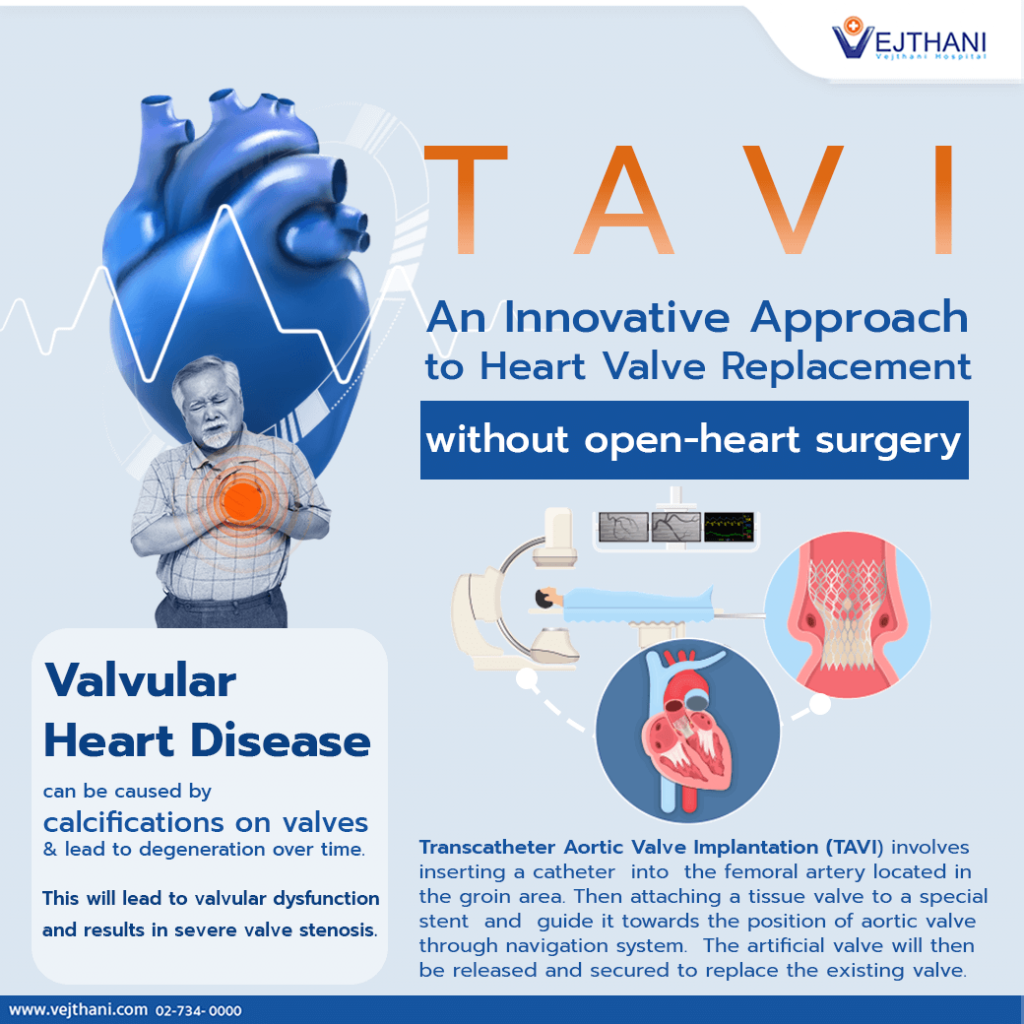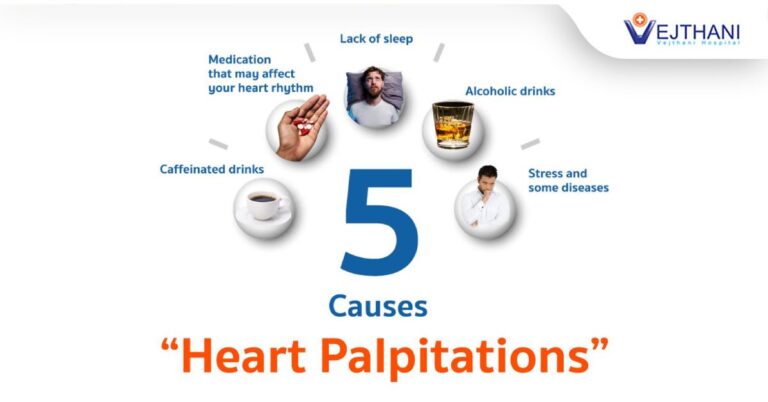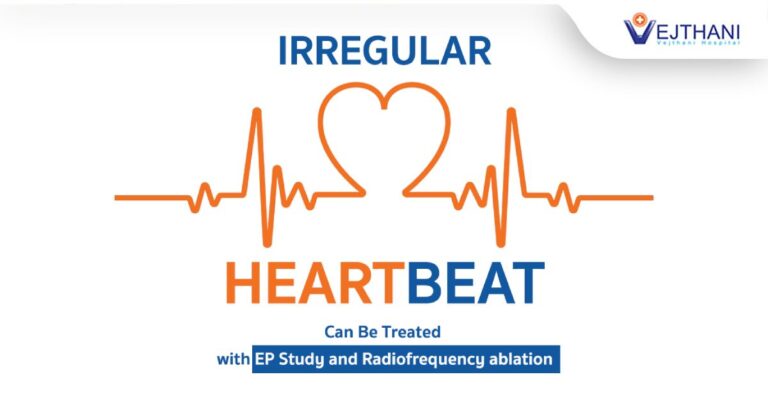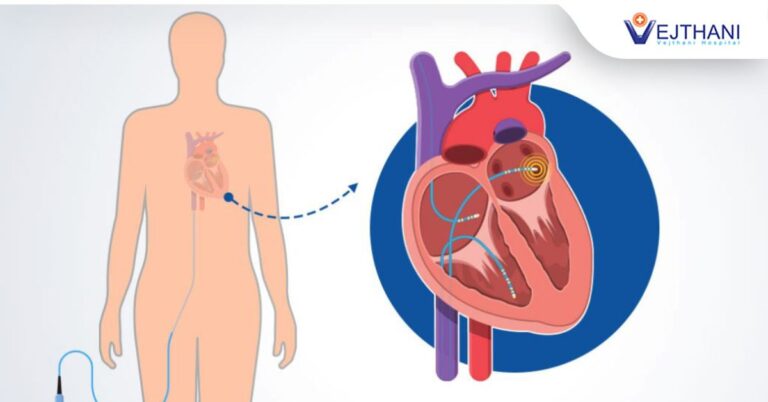

The TAVI procedure of heart valve replacement is a minimally invasive heart surgery that reduces pain and has a faster recovery period, allowing patients to return to their normal life in less time.
Dr. Anuruck Jeamanukoolkit, who specializes in interventional cardiology at Vejthani Hospital, explains that heart valves are tissues that separate the chambers in the heart for blood to flow in the right direction. If heart valves have a problem functioning, whether it is from a narrowing of the valve, blockage, leaking, degeneration or calcification, it will prevent valves from opening or closing properly. This will result in poor blood circulation, which will force the heart to work harder and eventually lead to a life-threatening condition.
“Valvular heart disease can be caused by calcifications on valves and lead to degeneration over time. This will lead to cardiac valvular dysfunction and results in severe valve stenosis. This condition often happens in the aortic valve that separates the left ventricle from the main artery that supplies blood to the rest of the body, known as the aorta. Aortic valve stenosis (narrowing of the aortic valve) restricts the heart from pumping sufficient blood and supply to different organs. This makes the patients tired, frequently fainted and fatigued. If the condition is left untreated, the heart wall will be enlarged and thickened from extra work and eventually lead to heart failure,” explained Dr. Anuruck.
Patients with severe valvular heart disease must be treated with heart valve repair surgery. For those that cannot be repaired, the doctor will consider heart valve replacement surgery instead. This consists of a standard surgical procedure as well as endoscopic surgery. However, technological advancements allow doctors to perform a non-surgical method of heart valve replacement with Transcatheter Aortic Valve Implantation (TAVI). The TAVI procedure involves inserting a catheter into the femoral artery located in the groin area. They then attach a tissue valve to a special stent and guide it towards the position of the aortic valve. The artificial valve will then be secured to replace the existing valve. This will leave no scar on the chest like conventional or endoscopic surgery. There will be only a scar in the groin area from the catheter insertion.
Aside from being a scarless heart valve replacement surgery, TAVI is less painful during the treatment, enabling the patients to recover faster and return to their normal life. Nevertheless, TAVI heart valve replacement has its limitations. The artificial valve does not last as long as the one used in conventional heart valve replacement surgery. Also, there is a chance for complications to arise such as a rupture or constrictions of the brain artery, or a slow heartbeat. TAVI is therefore only suitable for patients who are aged over 75 years old and can only treat the aortic valve.
For more information, please contact
Cardiac Center, 5th floor, Vejthani Hospital
Call: (+66)2-734-0000 Ext. 5300
English Hotline: (+66)85-223-8888
- Readers Rating
- Rated 5 stars
5 / 5 ( Reviewers) - Spectacular
- Your Rating
























